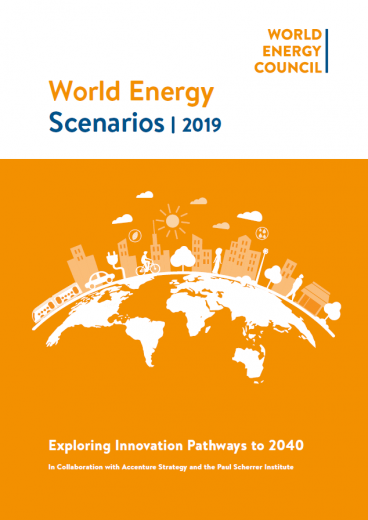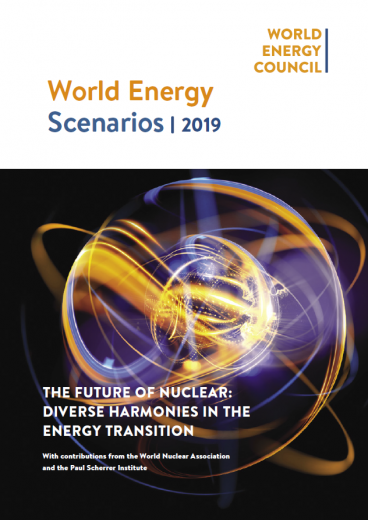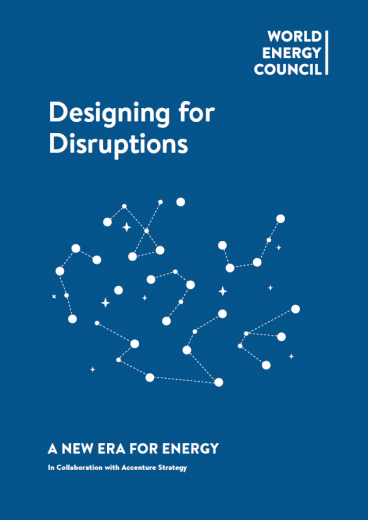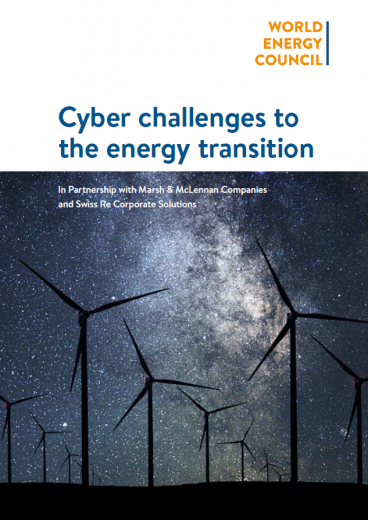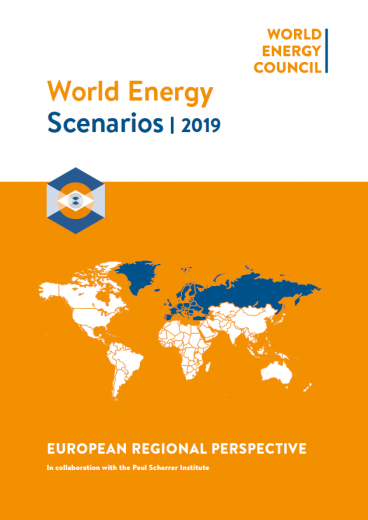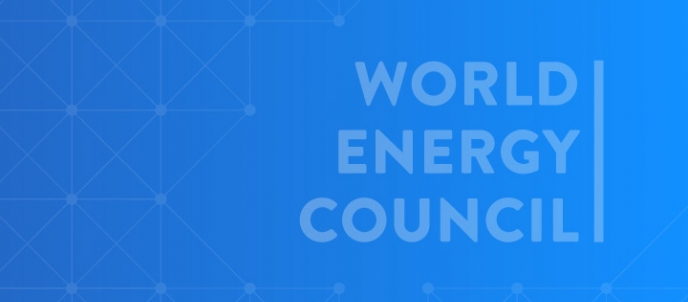Global Energy Demand on Track to Peak Between 2020 and 2025
New World Energy Scenarios discuss three plausible pathways to 2040 focusing on the impact of “disruptive innovation” on energy system.
On Monday, September 9th 2019, the World Energy Council in collaboration with Accenture Strategy and the Paul Scherrer Institute launched an updated World Energy Scenarios report. Among the key findings, per capita energy demand projected to peak before 2030 and innovative net zero carbon pathways include hydrogen. The scenarios provide energy leaders with a clear strategic framework for navigating ‘disruption-as-usual‘ and offer a neutral platform to support a better-quality global strategic dialogue on the future of energy systems.
Launched today during the 24th World Energy Congress in Abu Dhabi, UAE the World Energy Scenarios 2019 report provides an update of the Council’s global energy scenarios, presenting plausible pathways to 2040 with a focus on the broad and fast shifting landscape of innovation. The three musically-named scenarios are: Modern Jazz, which represents a ‘digitally disrupted,’ and market-driven innovative world; Unfinished Symphony, a future in which more ‘intelligent’ and circular economic growth models drive clean, affordable and sustainable energy transition; and, Hard Rock, which explores the consequences of inward-looking policies and weaker and unsustainable economic growth, in a more fragmented world.
The updated World Energy Scenarios provide new insights into the broader and fast-shifting landscape of innovation, which is emerging from within and beyond the energy system and includes not only new energy technologies but also policy, business model and social innovations. The scenarios highlight how different combinations of innovation accelerators – so-called „Constellations of Disruptions“– might trigger and scale to enable alternative energy pathways and disrupt existing value chains.
The World Energy Scenarios dig deeper into the new patterns of disruptive innovation coming from beyond, not just within, the energy system. The report includes new story lines to 2040, supporting systems maps, comparative analysis on energy implications, six regional perspectives, as well as illustrative quantification, on an aggregated global and regional basis.
Key highlights and the energy system implications:
- Global primary energy demand momentum remains in line with the 2016 scenario modelling, with per capita energy demand projected to peak in the 2020s.
- Electrification extends to more uses and users, driving decarbonisation rates; however, the question of hard-to-abate sectors and non-electrified uses remains open.
- A new mobility revolution, which is dependent on infrastructure, is gathering momentum with the potential to disrupt the entire energy landscape in the longer term.
- Energy efficiency gains are critical to manage energy demand from industrial, residential and commercial sectors and to avoid reducing climate change momentum.
- New opportunities are emerging to provide energy-plus services in an increasingly consumer-centric energy system.
- Infrastructure innovation and investment, and proactive policies are necessary to secure affordable decarbonisation and socially just energy transitions.
- New net-zero carbon pathways, including hydrogen, and carbon abatement mechanisms emerge and start to scale by 2040.
- Achieving Paris Agreement targets remains elusive, with none of the 2019 scenarios meeting the 2°C target agreed to in the UNFCC Paris Agreement.
“Disruptive innovation is driving change in the energy system at an unprecedented scale and pace,” said Muqsit Ashraf, Senior Managing Director, Accenture Strategy, Energy. “Our new Energy Scenarios highlight the impact of technology, policy, social, and business model changes on the demand and supply side. Our report suggests that under plausible scenarios, the climate targets are elusive. To achieve competitive agility and manage the economic, environmental and social objectives of the new energy system, industry leaders will have to double down on their response to challenges from peak demand and value, managing emissions, investing in infrastructure, and unleashing digital systemwide.”
Dr. Tom Kober, head of the Energy Economic Group of the Paul Scherrer Institute emphasizes that "The transformation of the energy economy is a systemic challenge where interdependencies between technologies, actors, markets and the environment play a decisive role on how new energy structures emerge and how successful future energy and climate goals will be achieved."
Ged Davis, Executive Chair Scenarios, World Energy Council, concluded: "Technological innovation, climate change and more tense geopolitics are disrupting the world of energy. These world energy scenarios provide the perfect tool for assessing these macro-uncertainties and crafting a strategic response for your enterprise."


